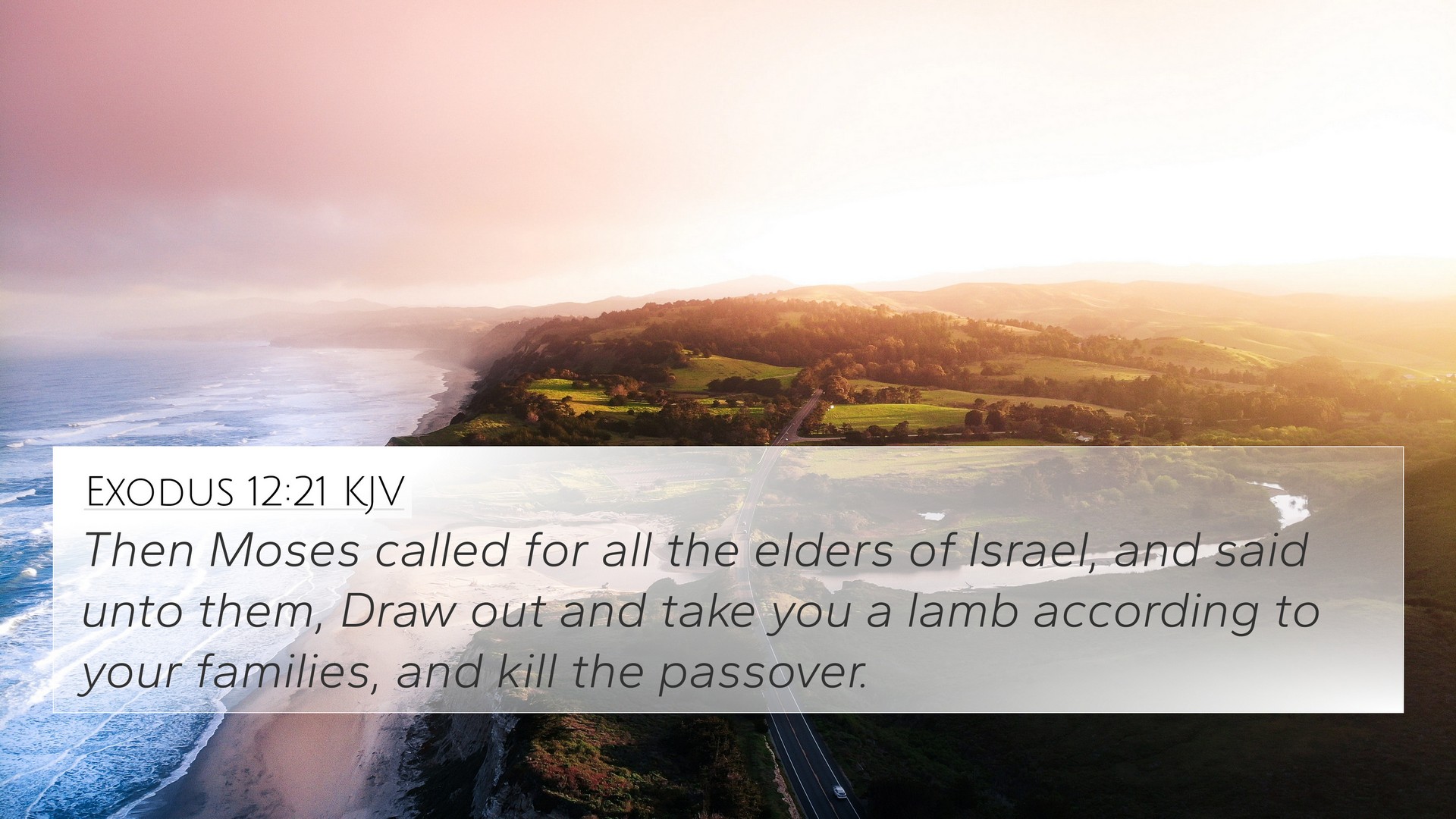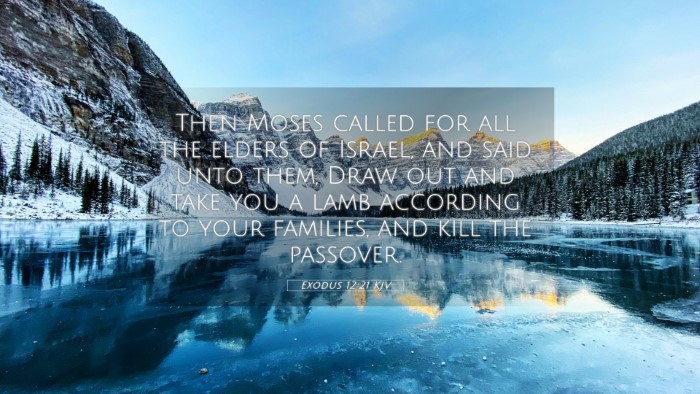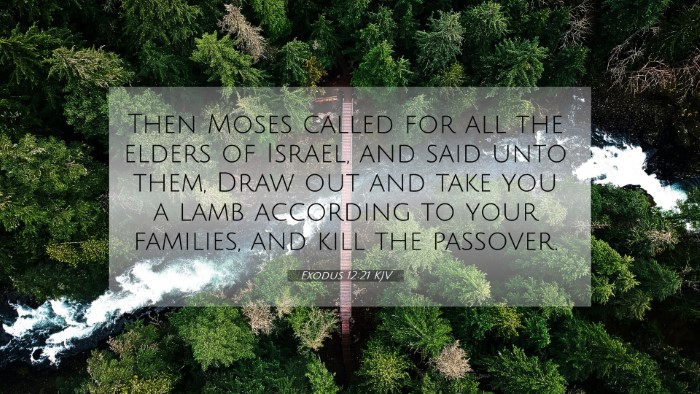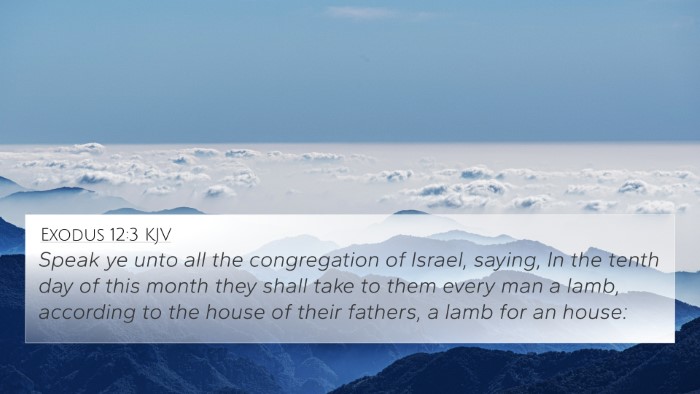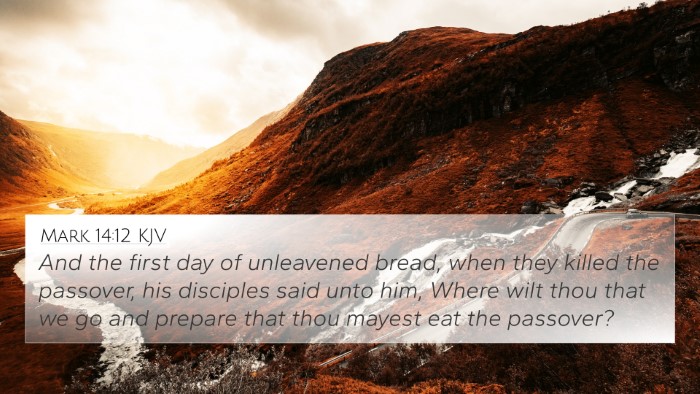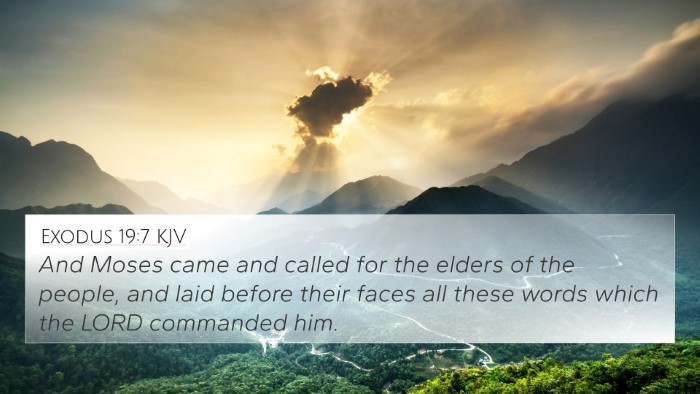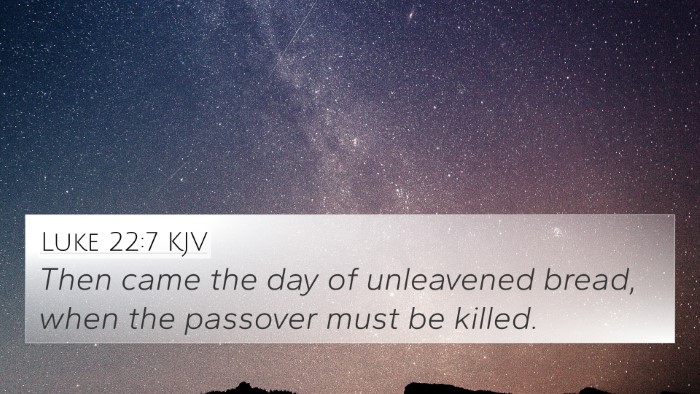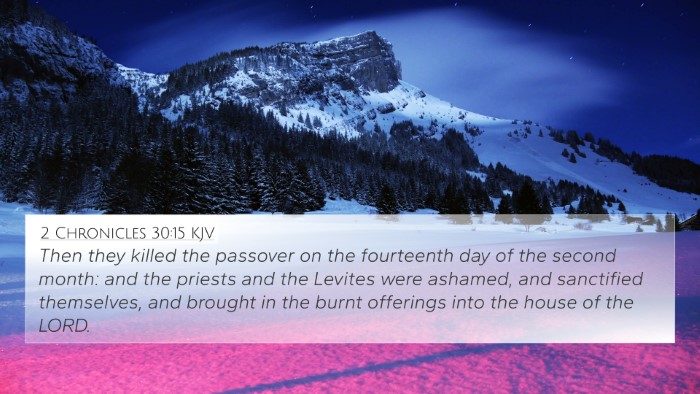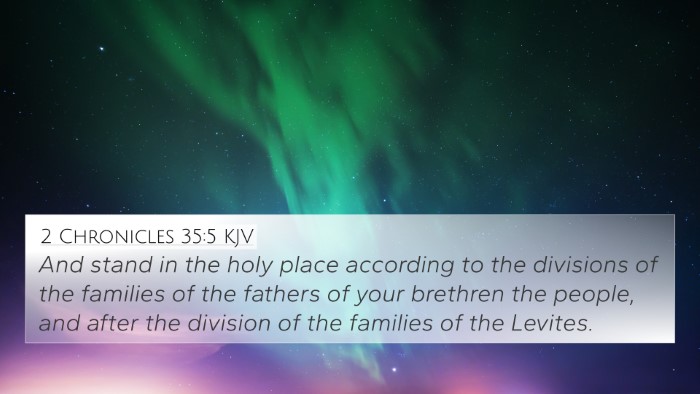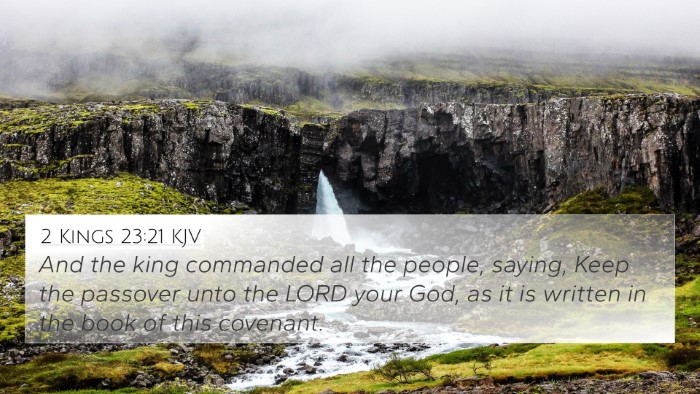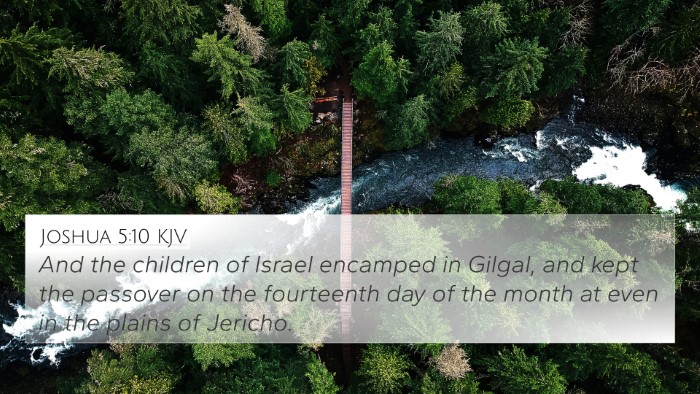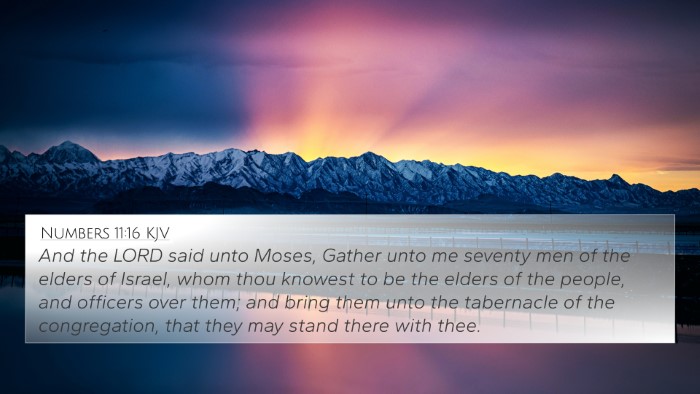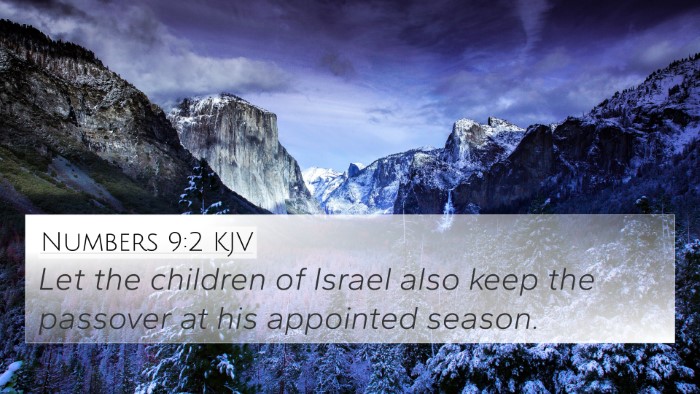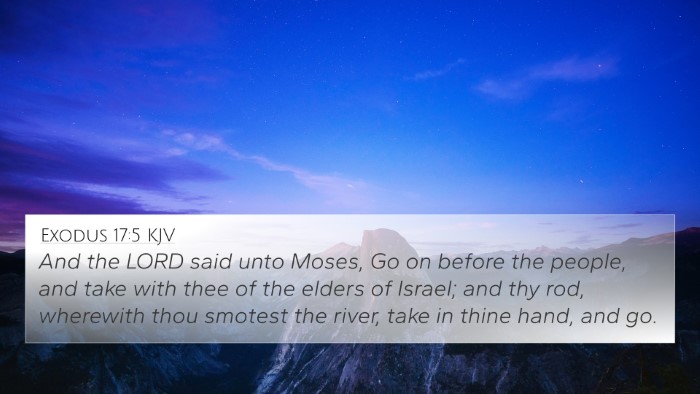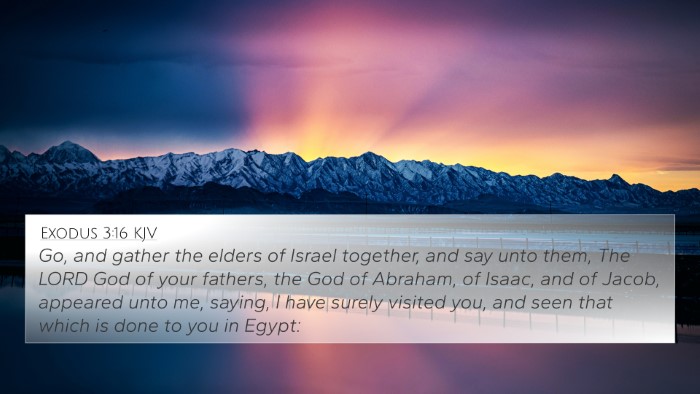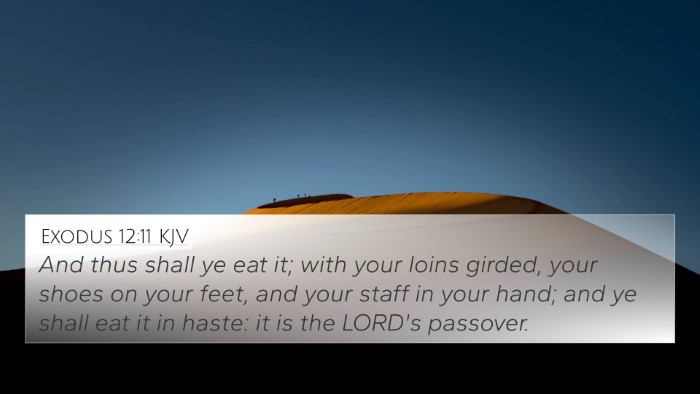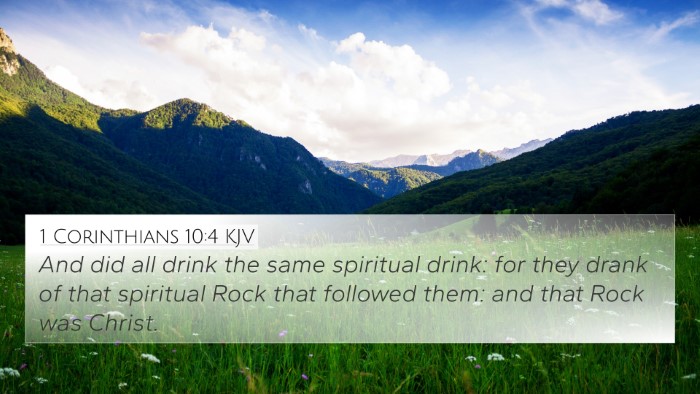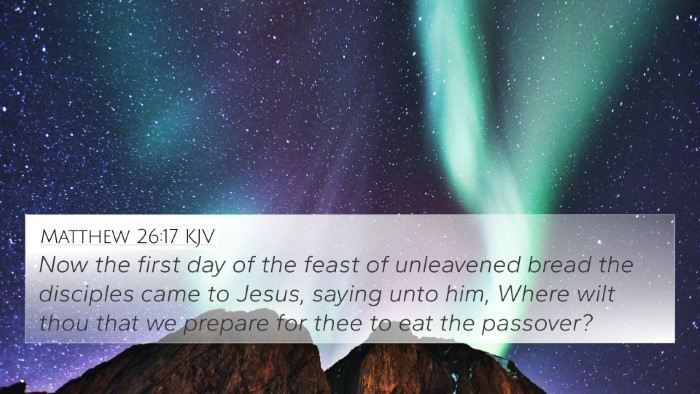Understanding Exodus 12:21
Exodus 12:21 states:
"Then Moses called all the elders of Israel and said to them, 'Go and select lambs for yourselves according to your clans, and kill the Passover lamb.'" (ESV)
Summary of Insights
This verse is fundamental in the narrative of the Passover, where God instructs the Israelites on how to prepare for their deliverance from bondage in Egypt. The Passover lamb represents salvation and God's protection over His chosen people.
Key Themes in Exodus 12:21
- Obedience: The call to select lambs demonstrates the importance of following God's commands faithfully.
- Community and Leadership: Moses' role in calling the elders signifies the communal aspect of worship and leadership within Israel.
- Sacrifice: The act of killing the lamb foreshadows later Biblical themes of sacrifice and redemption.
- Salvation: This event is pivotal as it marks a turning point for the Israelites, signifying God's deliverance.
Commentary Insights
Matthew Henry: Henry emphasizes the necessity of the lamb as a symbol of Christ, who is the ultimate Passover lamb. He notes that this act is not only about physical deliverance from Egypt but also a prefiguration of spiritual salvation.
Albert Barnes: Barnes provides a contextual analysis stating that the gathering of the elders and their involvement in the sacrificial process underscores the collective responsibility of the Israelite community in their redemption journey.
Adam Clarke: Clarke highlights the significance of the lamb being chosen "according to your clans," indicating a personal responsibility and the personal nature of salvation that each family must engage with.
Bible Verse Cross-References
Understanding Exodus 12:21 can be enhanced through the following cross-references:
- Exodus 12:3: "Tell all the congregation of Israel that on the tenth day of this month every man shall take a lamb according to their fathers' houses, a lamb for a household."
- 1 Corinthians 5:7: "Cleanse out the old leaven that you may be a new lump, as you really are unleavened. For Christ, our Passover lamb, has been sacrificed."
- Hebrews 9:12: "He entered once for all into the holy places, not by means of the blood of goats and calves but by means of his own blood, thus securing an eternal redemption."
- John 1:29: "The next day he saw Jesus coming toward him, and said, 'Behold, the Lamb of God, who takes away the sin of the world!'"
- Revelation 5:6: "And between the throne and the four living creatures and among the elders I saw a Lamb standing, as though it had been slain, with seven horns and with seven eyes, which are the seven spirits of God sent out into all the earth."
- Romans 5:9: "Since therefore we have now been justified by his blood, much more shall we be saved by him from the wrath of God."
- Isaiah 53:7: "He was oppressed, and he was afflicted, yet he opened not his mouth; like a lamb that is led to the slaughter, and like a sheep that before its shearers is silent, so he opened not his mouth."
Thematic Connections
The themes presented in Exodus 12:21 resonate throughout the Bible, particularly in understanding God's redemptive plan through Christ. The practice of sacrifice and the need for salvation are pivotal in both the Old and New Testaments.
Inter-Biblical Dialogue
Exodus 12:21 serves as a critical juncture for interpreting the overarching narrative of the Bible. The connections between the Old Testament sacrificial system and the New Testament teachings of Jesus highlight a continuum of God's plan for humanity's salvation.
Conclusion
Exodus 12:21 is not merely a historical account; it serves as a profound theological statement about God's intervention in human affairs through sacrifice, community, and faith. By exploring cross-references and thematic connections, one can appreciate the depth of this scripture in the wider context of the Bible.
